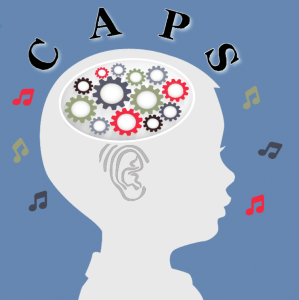CAPS for Typically Developing Children and Adolescents

The Child Auditory Processing Study uses EEG to investigate the brain systems underlying speech and sound processing. We are interested in how children with autism and their typically developing peers use auditory and visual cues to understand language.
In order to learn how children with autism process language, we need to better understand how typically developing children do so. This set of studies investigates the behavioral and brain systems underlying both basic and complex language processing. We are interested in how children use simple speech sounds as well as visual cues from a speaker to help them process language.
Who can participate?
We are no longer recruiting for this study.
What do participants do?
Behavioral Testing
Participants will complete a brief set of standardized language and cognitive assessments.
EEG Testing
For this proportion of the visit, participants will be wearing an EEG cap. The non-invasive cap is made up of little sponges that rests snugly on the head like a swim cap. For the EEG testing, we ask that you bring a DVD of your choice or pick one from our collection. For the first part of the EEG testing, participants will watch their video on mute while they listen passively to different sounds. For the second part of the EEG testing, children will watch and respond to short videos of a woman speaking directly to them.
Where does the study take place?
Sessions are held at the Center for Autism Research Excellence at Boston University. This location offers free parking for families and is easily accessible by public transportation.
What will I receive?
Compensation is provided for your time at $10/hour, paid in cash, and your child will get to take home a small prize. This study lasts about 2 hours.
Additional questions can be directed to:
Kayla Finch & Sophie Schwartz
Email: capstudy@bu.edu
Telephone: 617-358-5914